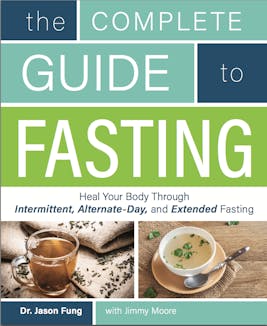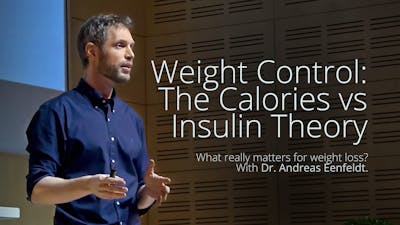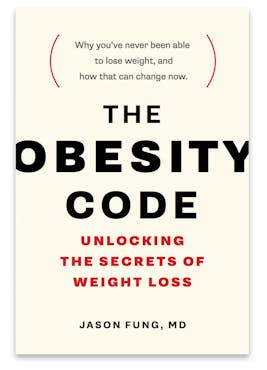Intermittent fasting vs. caloric reduction – what’s the difference?

Is there any difference between fasting and caloric reduction?
Some would argue that the beneficial effect of fasting is entirely due to the caloric reduction. If true, then why is there frequently a difference between the lack of success with chronically reducing calories and the success of fasting?
Caloric Reduction has been tried innumerable times over the past few decades, and failed the majority of times. Yet fasting is often effective where simple caloric reduction is not. Why?
The short answer is that the beneficial hormonal changes that happen during fasting are prevented by the constant intake of food. It is the intermittency of the fasting that makes it more effective. This prevents the development of resistance as detailed in a previous post.
The failed caloric reduction technique advises people practice portion control, or reduce daily caloric intake – for example simply reduce 500 calories a day and expect to lose 1 pound of fat per week. Success is as rare as humility in a grizzly bear, but that doesn’t stop well meaning health professionals from recommending it. After all, who hasn’t tried to portion control strategy of weight loss? Who has been able to maintain long term weight loss? Practically nobody.
Medical professionals have advised people for at least 40 years to count and restrict their calories. Calories In, Calories Out. Technically true, it turns out that the Calories Out, the part we do NOT consciously control is vastly more important than Calories In. Nevertheless, many doctors continue to advise cutting their calories and pretend that they will lose weight. When it doesn’t work, it may feel like they blame you, the patient for its failures.
Caloric reduction doesn’t work



So, what happens with focusing on calorie reduction? A detailed review can be found in the Calories series. Essentially, the body maintains its body set weight (BSW). As you start reducing calories, weight goes down, and the body compensates for this weight loss by trying to regain the lost weight. Hormonal mediators of hunger (ghrelin) increase. This means that measures of hunger and desire to eat increase. This happens almost immediately and persists almost indefinitely. This is no psychobabble that people lose their willpower over time and compliance wanes. People are really, physiologically hungrier because the hunger hormones are stimulated.
Next, the body’s metabolism starts to shut down. In response to a 30% decrease in calories, there is a roughly 30% decrease in total energy expenditure. We may start to feel tired, cold, and we have little energy for things like exercise.
As the body’s TEE decreases, the weight loss starts to slow down and then plateau. Eventually the weight starts to go back on, even as we continue to follow the diet. So the metabolic adaptations to caloric reduction is an increase in hunger and a decrease in basal metabolism. So, as you diet, you feel hungry, tired, cold and generally miserable. Does this sound familiar to any dieters? Probably sounds familiar to every dieter. This is what Dr. Ancel Keys had shown decades ago in his Minnesota Starvation Experiment. Despite its name, this was actually a caloric restriction study, with people eating 1500 calories per day, a level not far off most ‘expert’ advice today.
The worst part is that this strategy is likely to fail. The huge 50,000 woman randomized trial (Women’s Health Initiative) of the low fat low calorie diet proved to be a failure for weight loss. The problem with this strategy is that it does not address the long term problem of insulin resistance and high insulin levels. Since the insulin helps set the ‘BSW thermostat’ – the body keeps trying to regain the lost weight.
Here’s the bottom line. As you reduce calories, appetite goes up, and metabolism goes down. Yowzers. You reduce Calories In, but Calories Out goes down, too. This is likely to fail.
Intermittent fasting
As we detailed in the 27 part fasting series, the hormonal changes that happen in IF are completely different. During fasting, appetite goes down and TEE goes up. The body is trying to lose weight and helping you along. The main point is that it addresses the long term problem of insulin resistance. During caloric reduction alone, you do not get any of the beneficial hormonal adaptations of fasting.



Let’s assume the usual caloric intake was 2000 calories per day. With CER, calories are reduced to 1500, or 10,500 calories over 1 week. With IER, weekly calories are 11,000 calories per week. 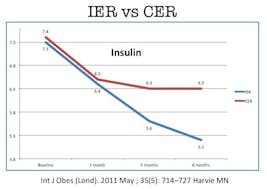


Over six months, what were the results? In terms of weight loss and fat loss, there were no significant differences (5.7 vs 5.0 kg weight loss, 4.5 kg vs 3.2 kg fat loss).
What happens to insulin resistance?
But the real important part of the study was the effect on insulin and insulin resistance. After all, hyper-insulinemia and insulin resistance are two key factors driving obesity and weight gain.
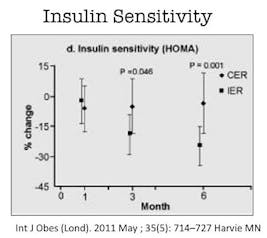


Intermittent fasting has effectively controlled obesity for thousands of years. Portion control has only been used extensively for the last 50 years with stunning failure. Yet many continually scream at us through books, TV, and online to reduce calories. Don’t they think we’ve tried that?
But the one strategy that does help, fasting, is continually belittled as a dangerous practice akin to blood letting and voodoo. The problem with most diets is that they ignore the biological principle of homeostasis – that is the ability of the body to adapt to changing environments. If you try to keep a constant diet, the body will adapt to it. This means that successfully dieting requires an intermittent strategy, not a constant one. This is a crucial difference.
The difference is between restricting some foods all the time (CER) and restricting all foods some of the time (IER). This may be the difference between failure and success.
—
Jason Fung
More
Intermittent fasting for beginners
Top videos about calories
- MEMBERS ONLY
![Q&A with Gary Taubes]()
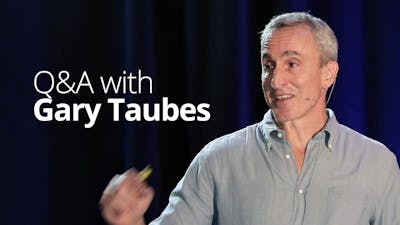
Top videos about fasting
- MEMBERS ONLY
![The 2 big lies of type 2 diabetes]()
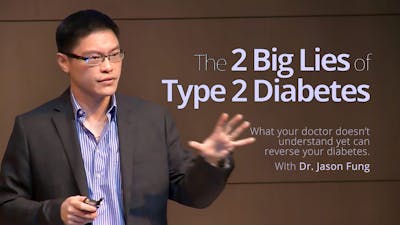
- MEMBERS ONLY
![The top 5 myths of fasting]()

- MEMBERS ONLY
![The cause of obesity]()
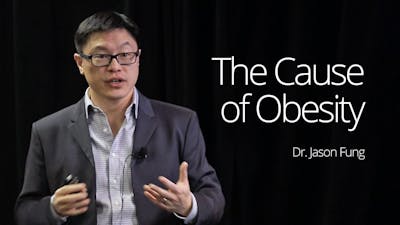
Earlier with Dr. Jason Fung
Insulin and Fatty Liver Disease
Obesity – Solving the Two-Compartment Problem
Why Fasting Is More Effective Than Calorie Counting
The Complete Guide to Fasting Is Finally Available!
How Does Fasting Affect Your Brain?
How to Renew Your Body: Fasting and Autophagy
Complications of Diabetes – A Disease Affecting All Organs
How Much Protein Should You Eat?
The Common Currency in Our Bodies Is Not Calories – Guess What It Is?
More with Dr. Fung
His book The Obesity Code is available on Amazon.
His new book, The Complete Guide to Fasting is also available on Amazon.
